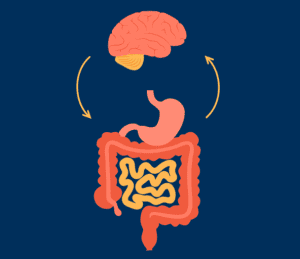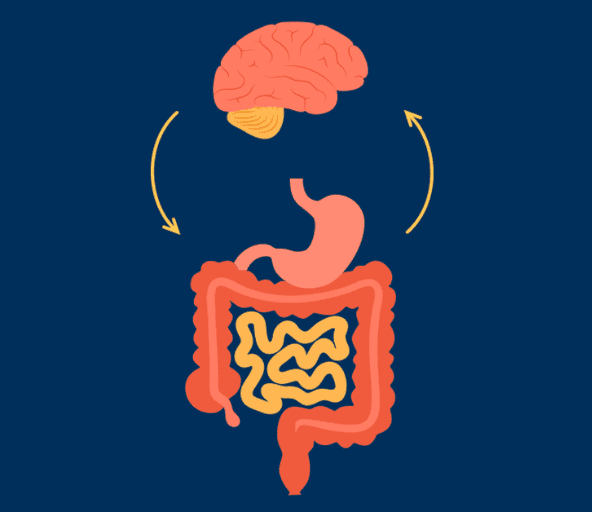 Introduction: In recent years, researchers have uncovered a profound connection between the gut and the brain, shedding light on a complex network known as the gut-brain axis. This intricate communication system between the gastrointestinal tract and the central nervous system has far-reaching implications for our physical and mental health. Understanding the dynamics of this axis can revolutionize how we approach issues ranging from digestion to mental well-being.
Introduction: In recent years, researchers have uncovered a profound connection between the gut and the brain, shedding light on a complex network known as the gut-brain axis. This intricate communication system between the gastrointestinal tract and the central nervous system has far-reaching implications for our physical and mental health. Understanding the dynamics of this axis can revolutionize how we approach issues ranging from digestion to mental well-being.
What is the Gut-Brain Axis? The gut-brain axis is a bidirectional communication network that connects the central nervous system (CNS), primarily the brain, with the enteric nervous system (ENS) of the gastrointestinal tract. This communication occurs through various pathways, including the vagus nerve, neurotransmitters, hormones, and immune system signaling molecules.
The Gut’s Role: The gastrointestinal tract, often referred to as the “second brain,” plays a crucial role in this axis. It is home to millions of neurons that regulate digestion, absorption, and gut motility independently of the brain. These neurons form the enteric nervous system, which can function autonomously but also communicates with the brain via the vagus nerve.
The Brain’s Influence: Conversely, the brain exerts a significant influence on gut function. Emotional and psychological factors such as stress, anxiety, and depression can affect gastrointestinal health, leading to symptoms like abdominal pain, bloating, and altered bowel habits. This connection highlights the intricate relationship between mental state and digestive well-being.
Key Players in the Gut-Brain Axis:
- Microbiota: The gut is home to trillions of microbes collectively known as the gut microbiota. These microorganisms play a crucial role in digestion, immune function, and even brain health. Emerging research suggests that the composition of gut bacteria can influence mood, behavior, and cognitive function.
- Neurotransmitters: Chemical messengers such as serotonin, dopamine, and gamma-aminobutyric acid (GABA) produced in the gut have profound effects on mood and cognition. Serotonin, in particular, plays a crucial role in regulating mood and is primarily synthesized in the gastrointestinal tract.
- Immune System: The gut houses a significant portion of the body’s immune cells. Immune activation in response to infections or inflammation can send signals to the brain, affecting mood and behavior. Chronic inflammation in the gut has been linked to conditions like depression and anxiety.
Implications for Health and Disease: The gut-brain axis has implications for a wide range of health conditions, including:
- Digestive disorders: Irritable bowel syndrome (IBS), inflammatory bowel disease (IBD), and gastroesophageal reflux disease (GERD) are often associated with alterations in gut-brain communication.
- Mental health disorders: Depression, anxiety, and other psychiatric conditions have been linked to disruptions in the gut-brain axis.
- Neurological diseases: Emerging research suggests a potential role of gut dysbiosis in neurodegenerative diseases like Parkinson’s and Alzheimer’s.
Therapeutic Interventions: Understanding the gut-brain axis opens up new avenues for therapeutic interventions:
- Probiotics and prebiotics: Modulating the gut microbiota through probiotics and prebiotics may help restore balance in the gut-brain axis and alleviate symptoms of gastrointestinal and mental health disorders.
- Diet and lifestyle modifications: Adopting a diet rich in fiber, fermented foods, and healthy fats can promote a diverse and resilient gut microbiota, thereby supporting optimal brain health.
- Mind-body practices: Stress reduction techniques such as meditation, yoga, and deep breathing exercises can help modulate the stress response and improve gut-brain communication.
The gut-brain axis represents a fascinating frontier in medical research, offering insights into the intricate interplay between the gut, brain, and overall health. By understanding and harnessing this complex communication network, we can pave the way for innovative therapies that promote holistic well-being, bridging the gap between gut health and mental wellness. As we delve deeper into the mysteries of the gut-brain axis, we unlock new possibilities for enhancing both physical and mental health.

